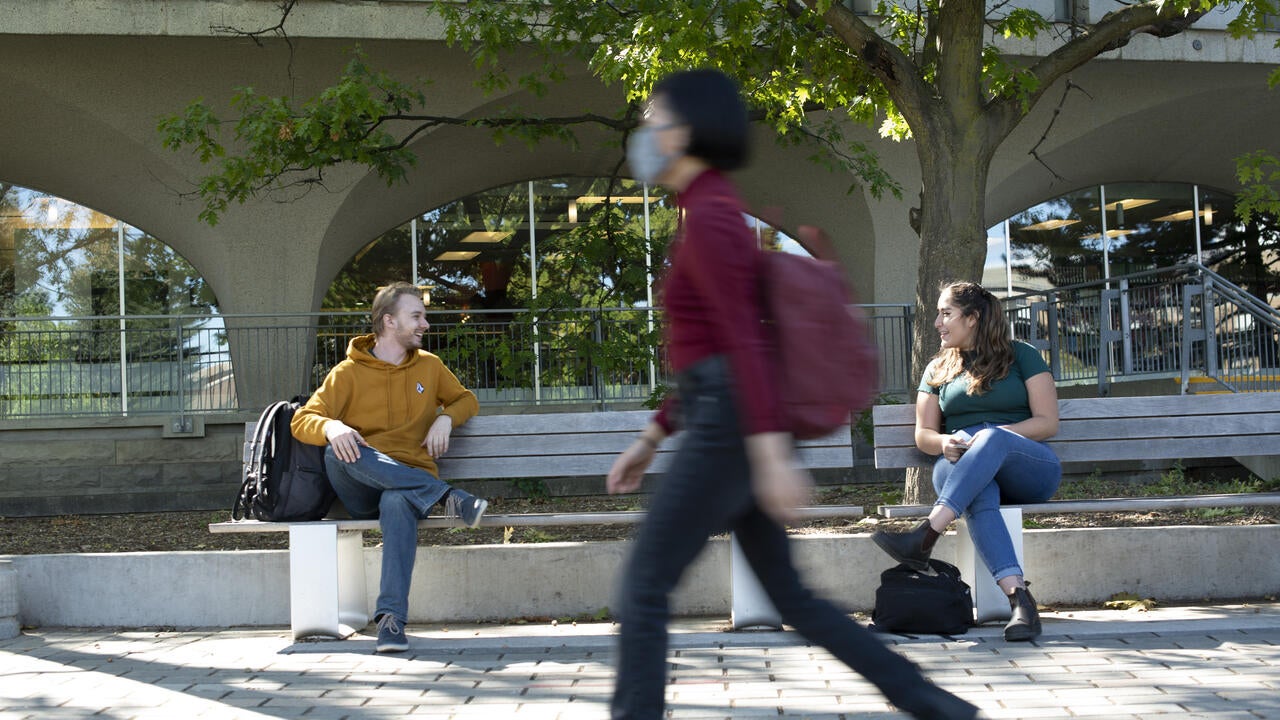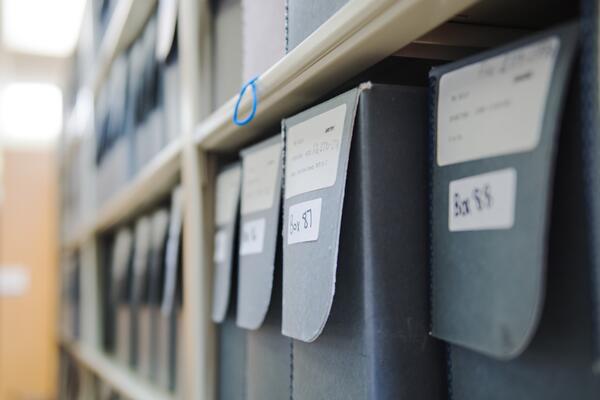
Five ways donors support the student experience
As Waterloo welcomes the largest group of in-person learners in three years, find out how charitable gifts are enhancing their experience.

As Waterloo welcomes the largest group of in-person learners in three years, find out how charitable gifts are enhancing their experience.
By Office of AdvancementThis September, the University of Waterloo welcomes the largest group of in-person learners it has seen in three years. Students are excited to be back among friends and peers, to be part of a vibrant and inclusive culture of learning, living and working. With that in mind, it’s an ideal time to look at the top five ways charitable donations from alumni, parents, faculty, staff, retirees, and friends are helping students find their place at Waterloo. Collectively, these areas create a sense of community for students; the places, spaces, services and programs where students can feel valued, understood, supported and empowered.
AMY S., Science & Business student
“If the pandemic taught students anything, it’s the importance of being able to adapt to new situations and navigate through the unknown. By supporting our Waterloo experience, charitable donations to any of these funds empower us to achieve our full potential in an unpredictable world.” .
From varsity to intramural sports teams, to leisure activities like disc golf and the climbing wall, Warriors can find a sense of community and belonging on campus. A top priority for Athletics and Recreation is equity, diversity and inclusion in sport through scholarships to encourage more female participation, the development of female coaches, and events aimed at raising awareness of racism in sport.
Through Waterloo’s world-renowned co-op program, students find purpose and meaning. The opportunity to test-drive different career paths allows students to learn valuable skills while discovering what they’re good at and how they can contribute to the kind of world they want to live in — all while earning money to help pay for tuition. A current priority for Co-op and Experiential Education is WE Accelerate, where students work on innovative projects with partner employers to develop their skills before pursuing their first co-op work term.
Home to millions of visits each year, the Library is an extensively used space located in the heart of Waterloo’s campus. This safe, welcoming space provides an ideal environment for students to study, learn, collaborate, socialize, and often, to just relax. As learning and research shift increasingly to ‘digital first’, one of the Library’s current priorities is increasing on-demand access to thousands of digital journals, papers, e-books and other resources which learners can access from anywhere, at any time.
By bringing together counselling and health services, Student Wellness forms a circle of care that treats the mind and body through in-person and virtual resources. Whether its tips on managing academic workload, help with the anxiety of living away from home, or treatment for a common cold, students have the right resources to help with their academic, personal and career development. A current priority is the Mental Health Literacy Program which trains professors, academic advisors, residence dons and others to recognize mental health issues, understand systemic barriers to mental health care and help students get the support they need.
The Waterloo Fund supports initiatives that enhance the student experience. The power of the Waterloo Fund is in the combined impact of charitable gifts — even modest gifts add up to big impact when they are pooled together. Each year, Waterloo’s senior leaders determine how to best use the fund to support students. As new priorities emerge, the flexibility of this unrestricted fund means support can be redirected where it’s most needed. Current priorities include optimizing students’ mental and physical wellbeing, initiatives like equity and inclusion, and ensuring students have the latest tools and technology for learning and research.

Read more
Upside Robotics secures new funding to accelerate the future of sustainable farming

Read more
Discover the meticulous work that uncovered Black stories on campus and preserved them for the future

Read more
A message from the President and Vice-Chancellor
The University of Waterloo acknowledges that much of our work takes place on the traditional territory of the Neutral, Anishinaabeg, and Haudenosaunee peoples. Our main campus is situated on the Haldimand Tract, the land granted to the Six Nations that includes six miles on each side of the Grand River. Our active work toward reconciliation takes place across our campuses through research, learning, teaching, and community building, and is co-ordinated within the Office of Indigenous Relations.